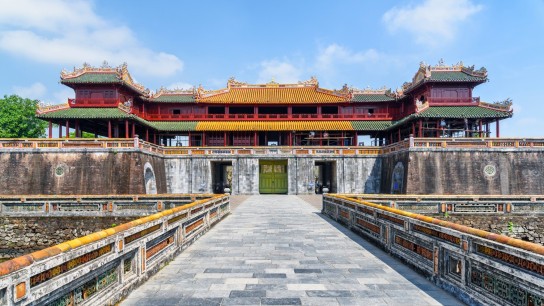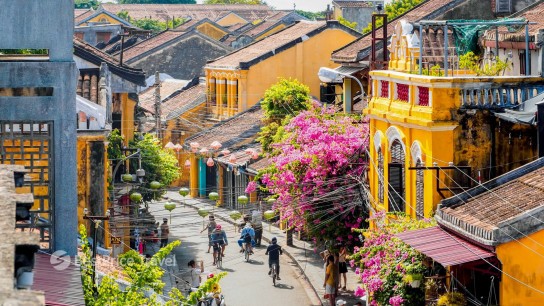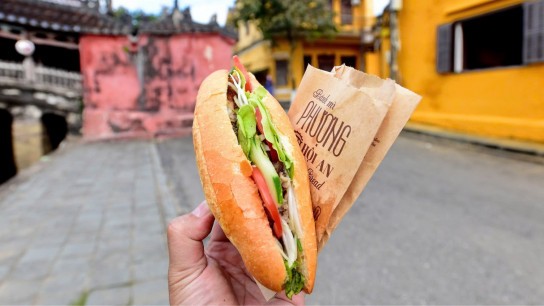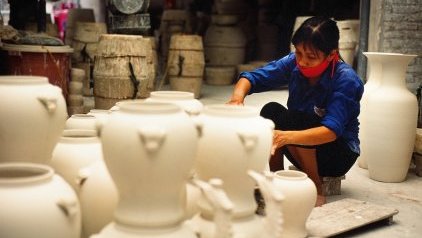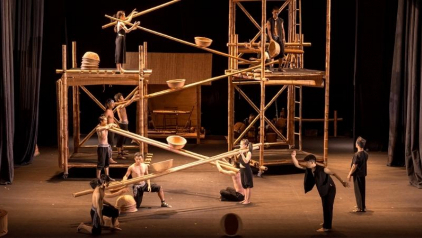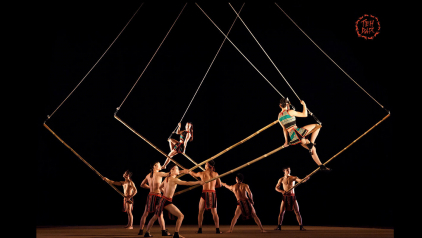The Visual Art Forms You Must See in Vietnam
There is no better way to begin to know a country than by exploring its unique art forms. Whether it is a lovely inlaid lacquer piece or an exquisite hand-embroidered painting, you’re sure to be delighted by the art of Vietnam.
Once a lesser-known nation, Vietnam has grown to become an increasingly popular choice for international travelers keen to soak up the sights and sounds of the Far East. It is not difficult to see why they are attracted to Vietnam. Along with the experience and knowledge that they desire first hand, this small country is blessed with some of the most spectacular scenery in South East Asia. Any fan of art, crafts, or ancient traditions needs to look no further than the art of Vietnam for inspiration and awe-inspiring works. So here is our pick of art styles that we’re certain you’ll discover something to delight in.
Lacquer Paintings
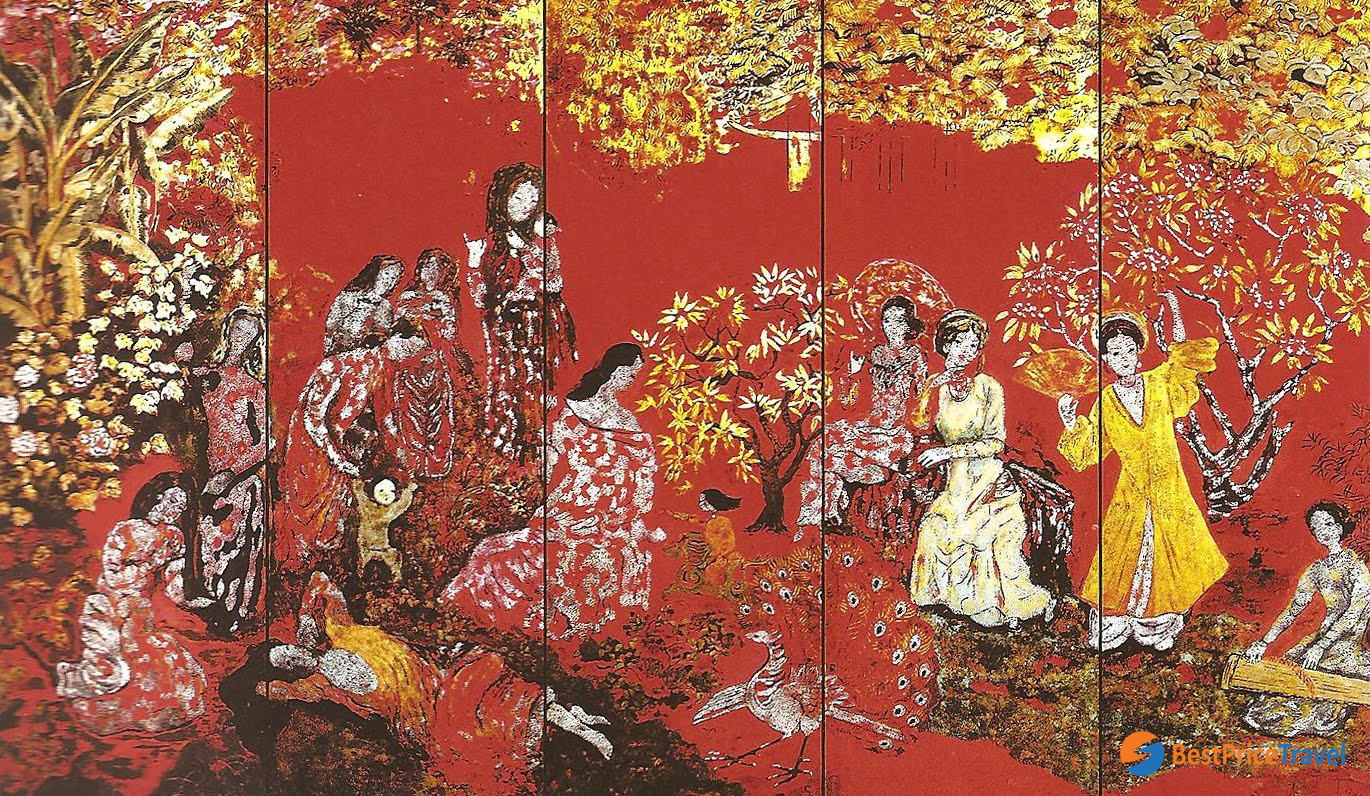
A typical lacquer painting
It is believed that the origin of lacquerware is from China; however, lacquer painting is Vietnam's original art form. Inspired by Western oil painting and created by Vietnamese materials, the value of lacquer painting is its eternal beauty which can be remained forever thanks to the complicated making procedure. In detail, there are more than 20 steps to create a perfect lacquer painting with inestimable value; however, basically, you can have the general view of making a lacquer masterpiece with some basic techniques as below:
- Prepare blackboard
- Draw outline on the board with chalk
- Paint different layers of colors
- Abrading painting surface
- Attach embellishments
- Vanish and polish
The duration of making lacquer paintings can cost many months and even years as some most important steps like painting layers and abrading may have to repeat times due to artisans' desire and talent.
In the beginning, there are only 4 main colors used in lacquer paint which are brown, red, black, and gold/silver powder or leaf. However, as time passes, artisans create and apply more color which makes the artworks more lively. The most interesting thing about lacquer paintings is that the more you watch them, the more colors you can see inside them because so many layers of colors were applied and abraded delicately.
Nowadays, lacquer painting is not only available on a flat surface. Thanks to the non-stop creation of artisans, lacquer painting is now can be applied on the vase, plate, bowl, etc. which can be found at any gallery and souvenir shop in big cities like Hanoi and Ho Chi Minh City, bring lacquer art nearer to social life.
Dong Ho Folk Paintings
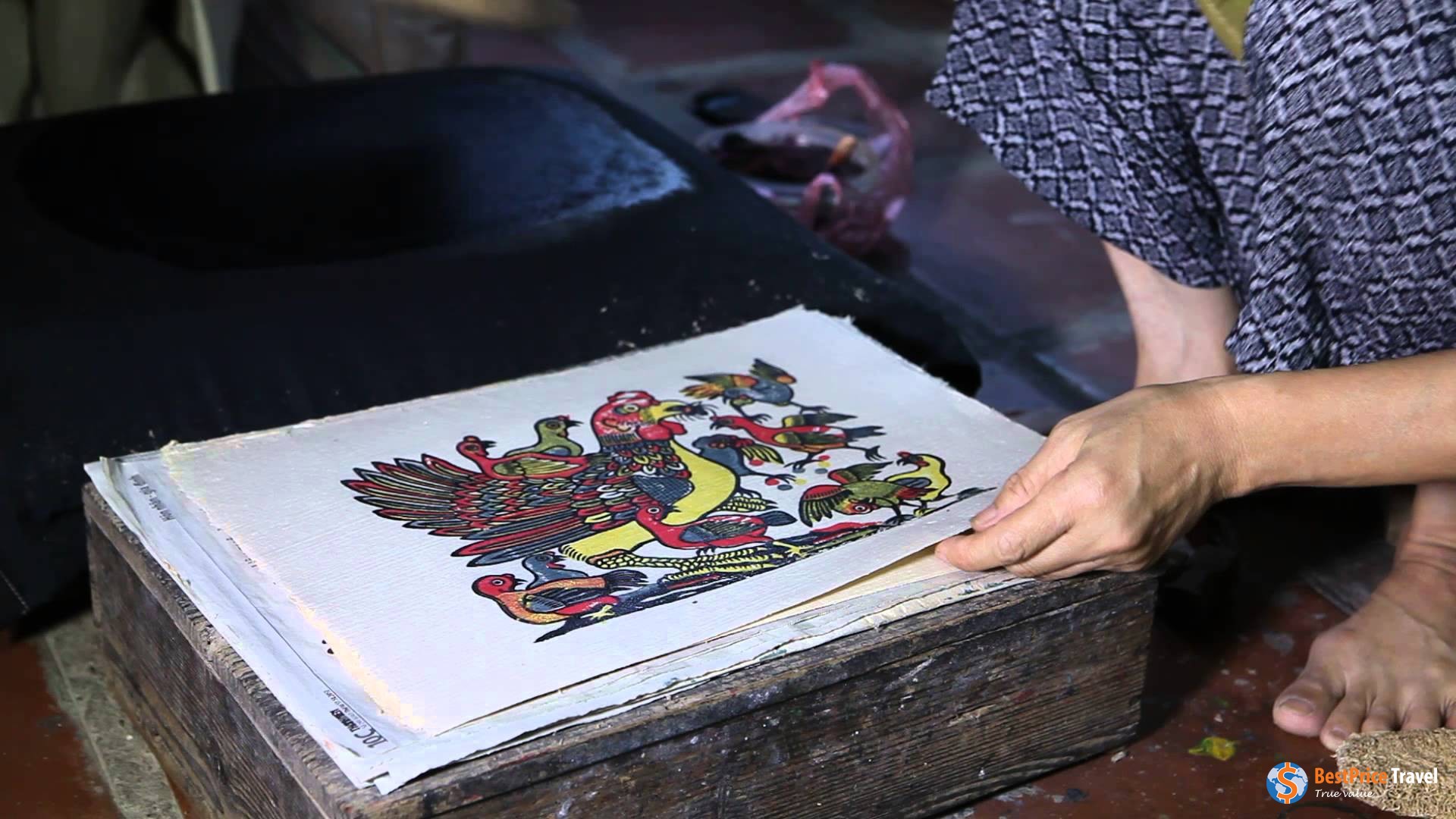
Dong Ho Paintings was born in Dong Ho Village.
Vietnamese folk painting originates from the folk engravings of the neolithic era, influenced by religious beliefs, and has developed along the course of Vietnamese history. Folk paintings are transmitted by local communities and thus reflect the cultural characteristics of the respective communities, making them greatly valuable in the cultural-historical perspective. Since the woodblock printing technique appeared, Vietnamese artisans developed the art of duplicating any folk painting by carving it onto a wooden board and printing multiple copies on paper or silk. Paintings, hence, are made easier and even poor people can buy them. Depending on the drawing-printing technique, style as well as materials used, folk paintings are classified according to the name of their place of production. The most well-known of all is Dong Ho Village. Dong Ho is a beautiful village located on the southern side of the Duong river dike, about 30 kilometers to the East of Hanoi center.
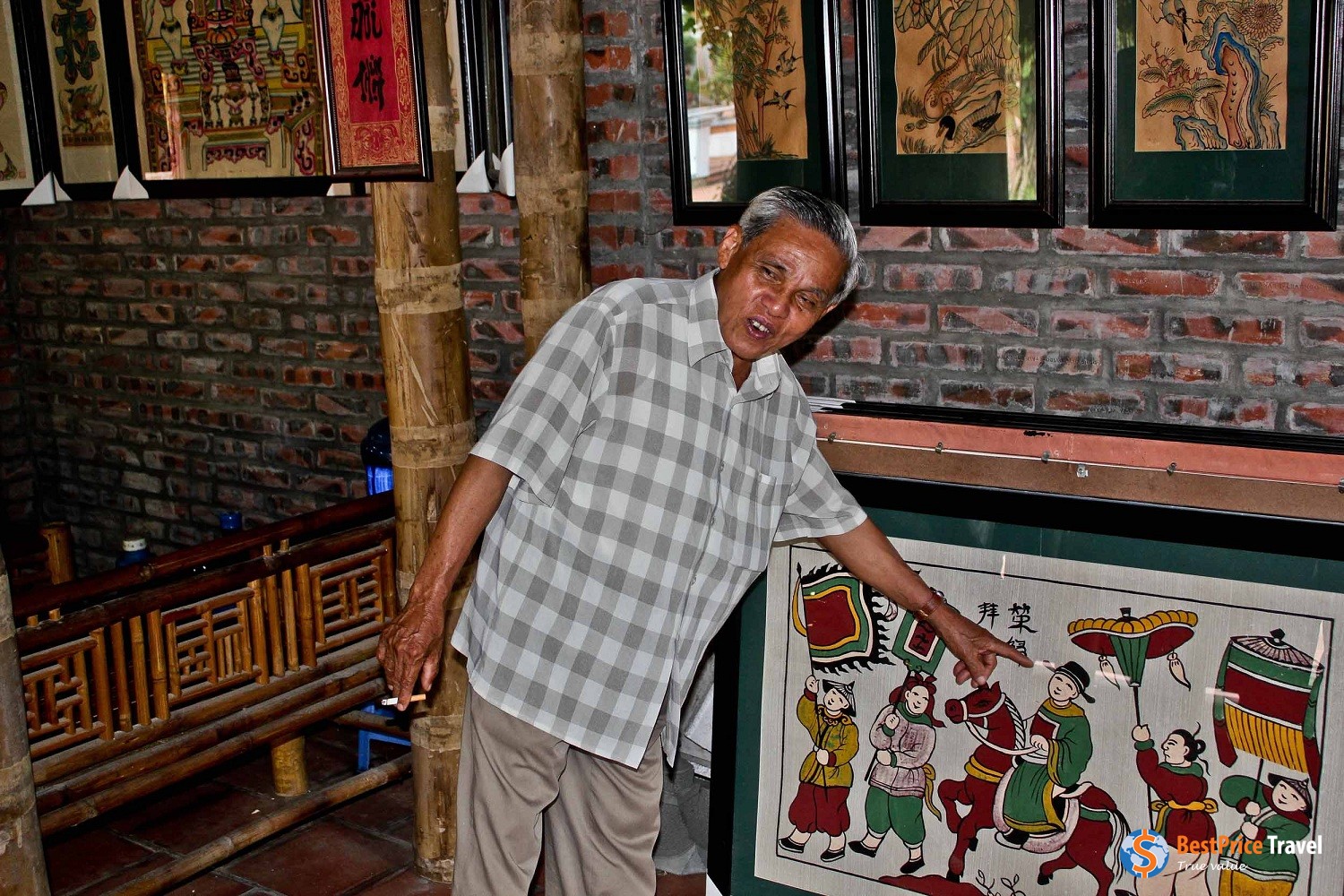
Local artisan explaining the concept of the painting.
In the old days, they use raw materials and all-natural colors, like burnt bamboo leaves for black, cajuput leaves for green, copper rust for blue, pine resin for amber, and crushed eggshells mixed with paste for white. Covered by a later of sticky rice paste to protect the painting and the colors, they are quite long-lasting, which is why many centuries-old examples can still be found and enjoyed. Until now, foreigners who come to Vietnam can visit the village on a day excursion from Hanoi, and buy some paintings as souvenirs.
Lanterns in Hoi An
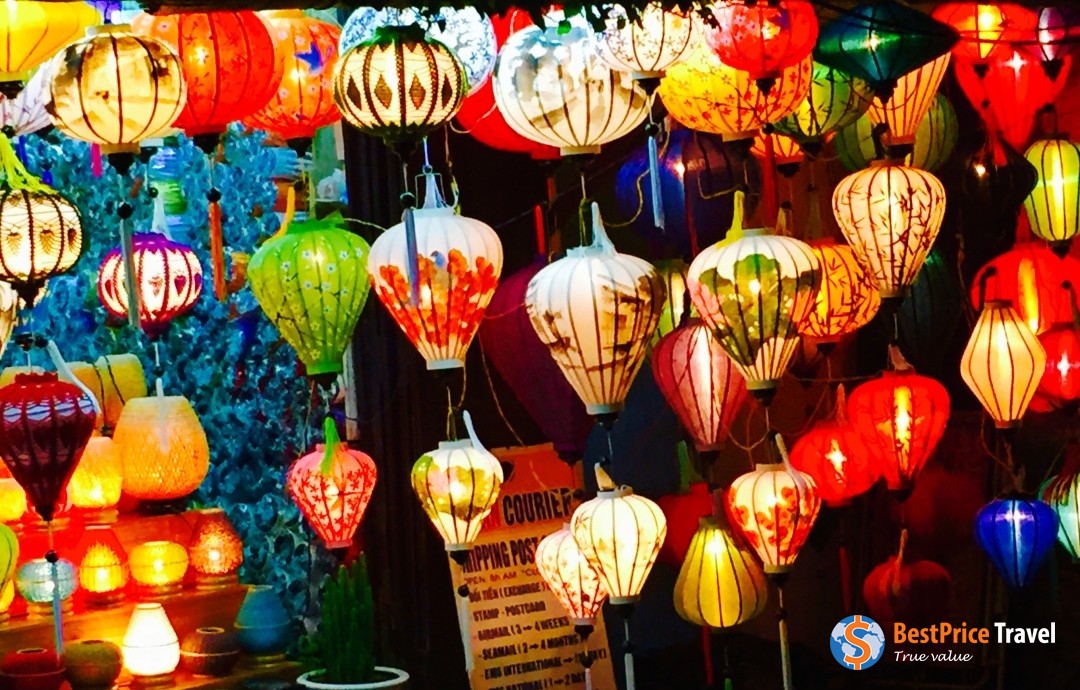
This is why Hoi An is the most photogenic place in Vietnam.
It doesn’t take long to fall in love with Hoi An. The old houses and life in Hoi An old town will make you feel that you are brought back to 150 years ago. Strolling along the narrow lanes is the best way to explore the town. One of the greatest charms of the ancient town that visitors cannot fail to delight in is the colorful silk lanterns hung all over the town. The lanterns are beautiful in the daytime; but it is after dusk when the lanterns are lit up and glow, they really come to life. People believe that hanging lanterns in the home will bring good luck and happiness and that you should take your time to choose a lantern that’s right for you. This might be a perfect souvenir from Vietnam for all ages. (They are easy to fold and carry in a suitcase.) Apart from that, guests should attend a lantern-making class which you can make one by yourself and bring it home.
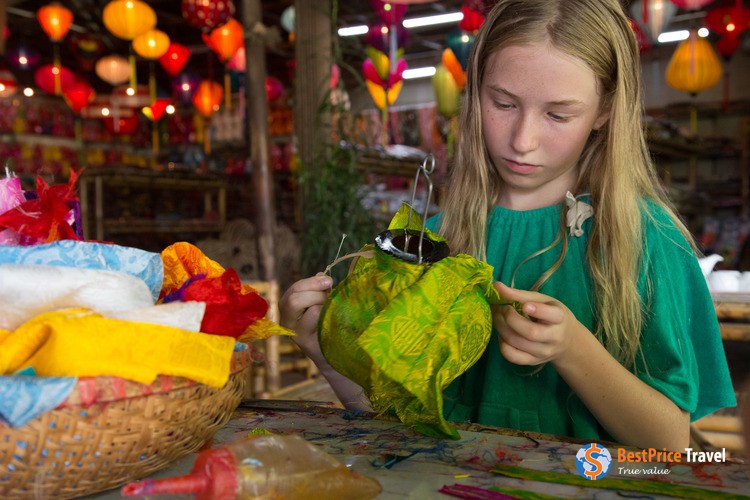
Kids at the lantern-making class.
Hand Embroidery
In Vietnam, embroidery art dates back more than 700 years. Traditionally, the embroidery was the job of women as the ancient philosophical idea: “Men read books and learn poems. Women practice sewing and embroidery.”
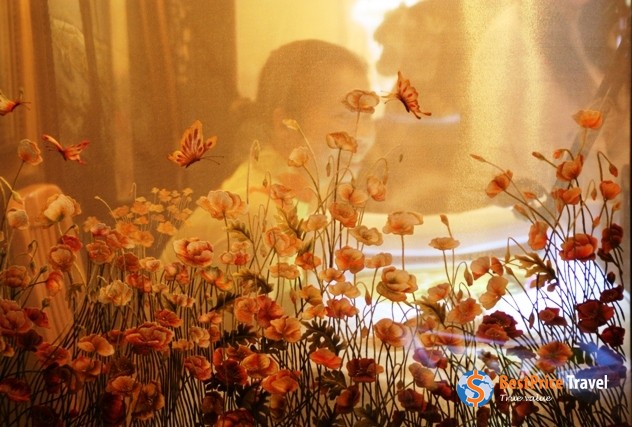
Exquisite embroidery painting made with silk threads.
Now, embroidery art has been kept alive in modern times by local artisans, ethnic minorities, and artists. The technique is often learned by high school girls as an extra-curricular activity (boys can learn, too). The process of making these embroidery art pieces requires a (lot of) patience and talent as each embroidery art piece takes a great deal of time to complete. Stitch by stitch, each silk embroidered art piece has been skillfully designed by master silk embroiderers and then mounted, matted, and framed, all by hand. Sure, you can pick up embroidered pictures at one of many shops in major cities of Vietnam, but for true masterpieces, check out the XQ galleries and workshops or Hong Ngoc Humanitarian Vocational Training Center on the way from Hanoi to Halong Bay where you can also see ladies at work creating ingenious designs.
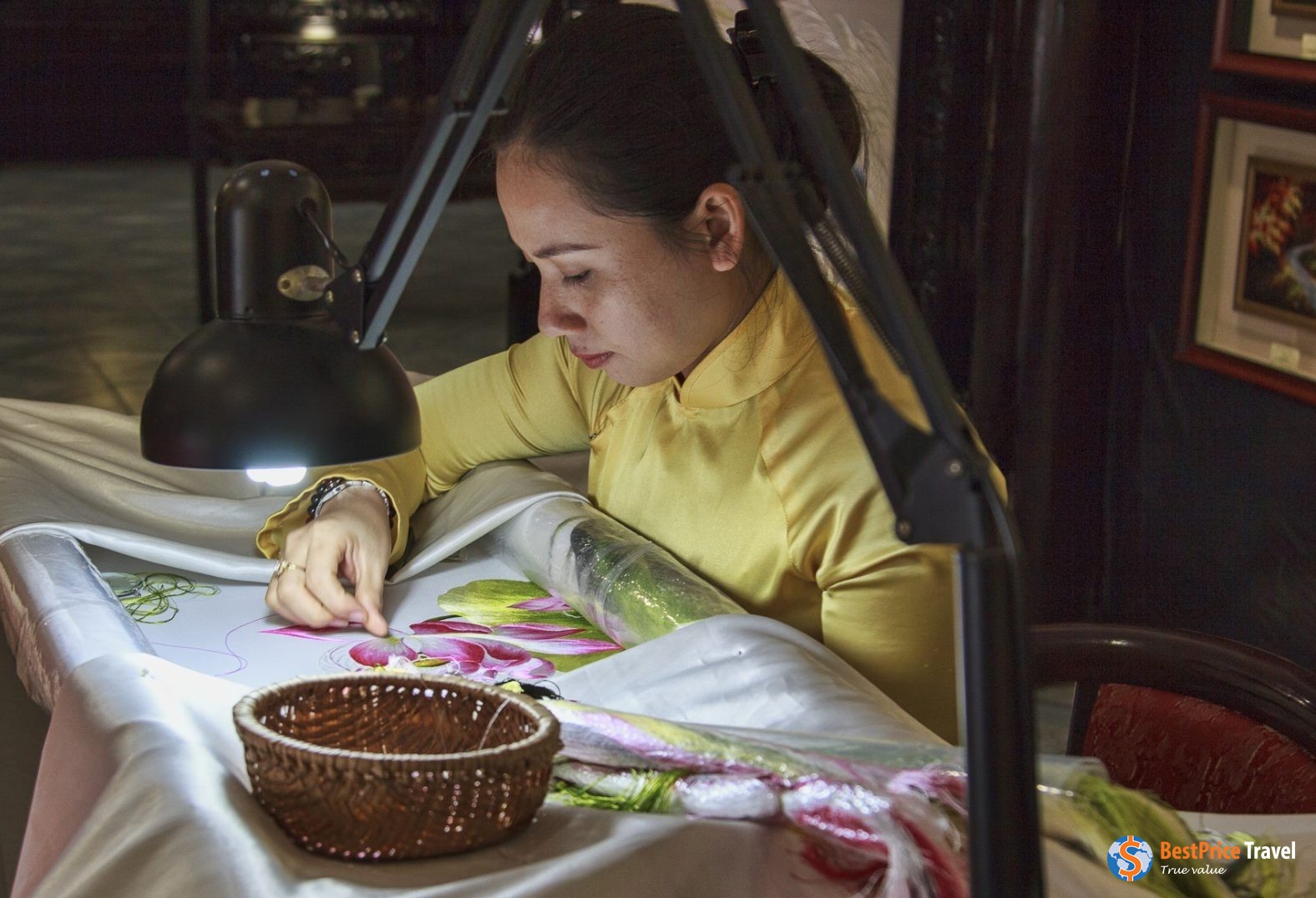
Lady at work in XQ Historical Embroidery Village Nha Trang.
Pottery and Porcelain
Perhaps the biggest influence on the creativity in Vietnam was the presence of the Chinese rulers, who invaded and controlled the country for thousands of years. During this period, the Vietnamese learned Chinese techniques, specifically in fields involving ceramics. During feudalistic times, Vietnamese pottery and ceramics were an essential part of the trade between Vietnam and its neighbors, throughout many dynasties.
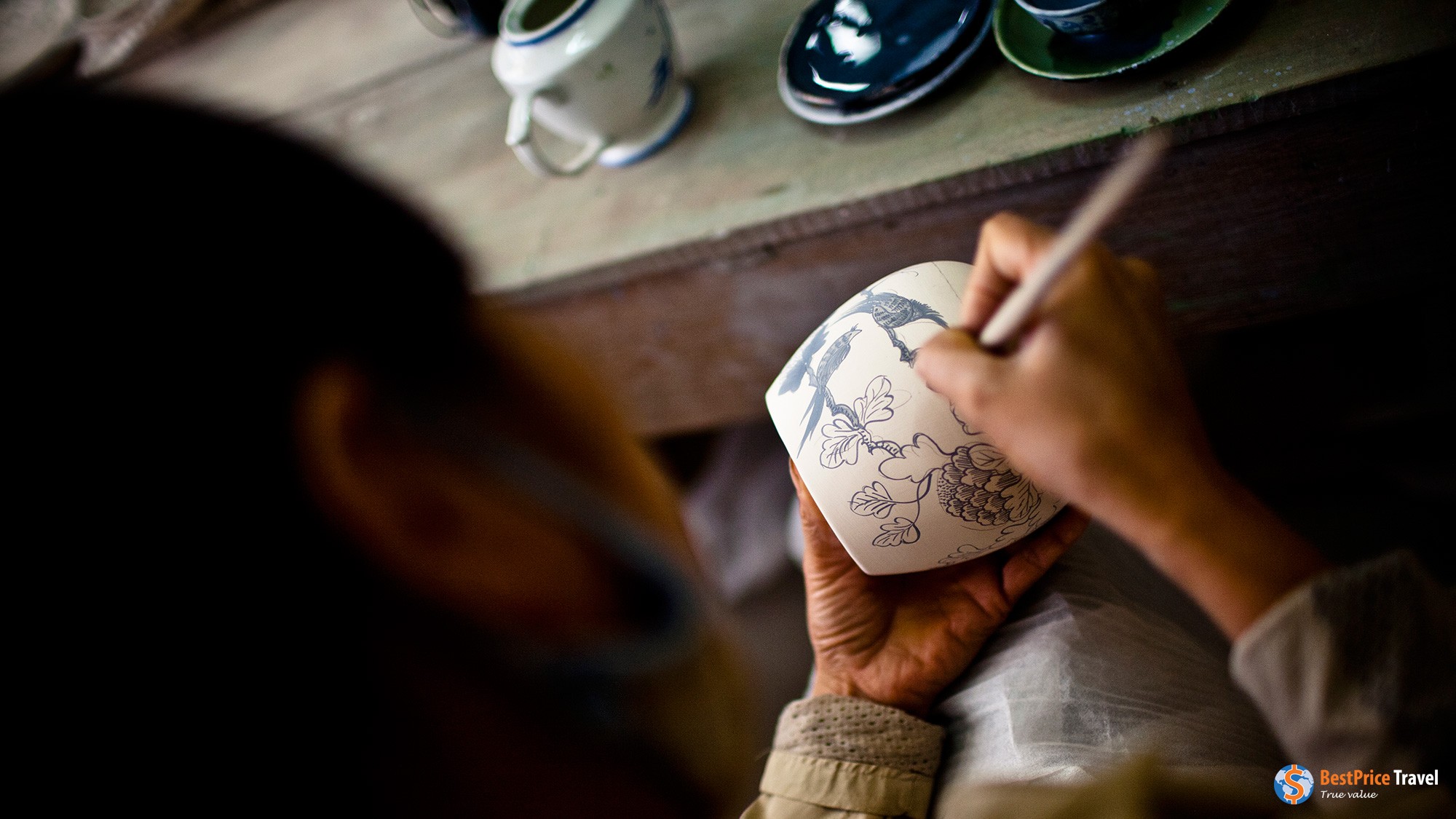
Artisan decorating a ceramic vase.
The ideal place to get a glimpse of the country's rich ceramic art form is Bat Trang Village whose handmade ceramics can be found in stores globally. It’s not just a place where pottery is made – the entire village makes pottery. The techniques, skills, and styles have been passed down through generations. Just 16 km southeast of the Old Quarter, coming here, visitors can walk through the village and the markets that sell ceramic goods: teapots and teacups, plates, bowls, and figurines... The most favorite thing to do in Bat Trang is visiting a workshop to watch local artisans make a pottery product step - by - step or make your own product and keep it as a souvenir.
Water Puppet Show
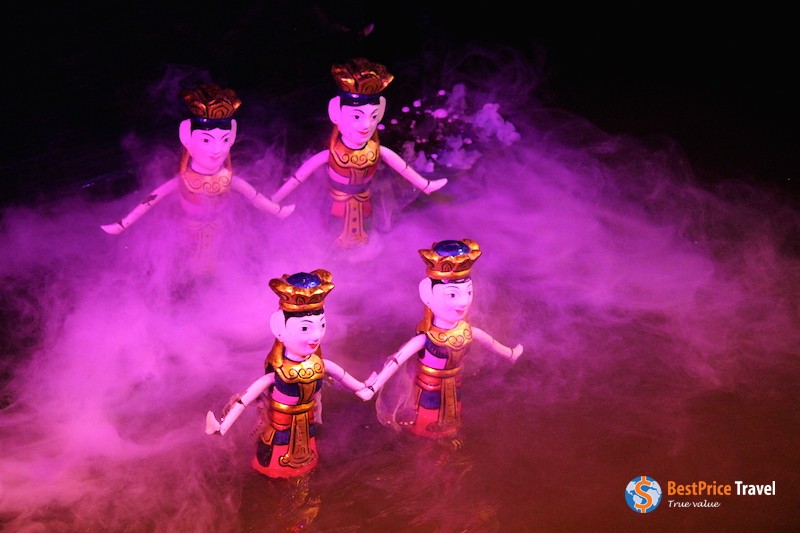
Water puppetry has been practiced in Vietnam for hundreds of years.
With roots that go back to 3,000 BC, the art of puppetry has graced stages worldwide and still manages to lure a crowd around the world, no matter how technologically sophisticated today’s entertainment. But not like any other puppet show you’ve seen before, the puppet show in Vietnam this folk tradition has a special twist: both the puppeteers and their lacquered wooden puppets perform on the water. From behind a bamboo curtain, the puppeteers stand in knee-deep water and control their subjects via long rods and strings, moving them along the water surface as they depict heroic fables or daily farm life. Certainly, it will be much great if tourists can directly watch these shows in popular tourist destinations like Hanoi, Hoi An, or Ho Chi Minh City. If you want to buy some gifts, water puppet replicas for sale are available in many souvenir shops in Hanoi Old Quarter.
For many people, discovering the beauty of a country’s culture can be the original spark for lifelong dreams about traveling there. Vietnamese art is the triumph of life and happiness over hardship. These art forms are just a small sampling of the rich traditional arts of Vietnam. Now that restrictions on travel to Vietnam are being lessened, it’s a great time to learn more about the country’s culture as a way to enhance our experiences when we visit. You are sure to discover more remarkable art, both traditional and modern, on your Vietnam vacation.
Xuyen
Image Sources: Internet

